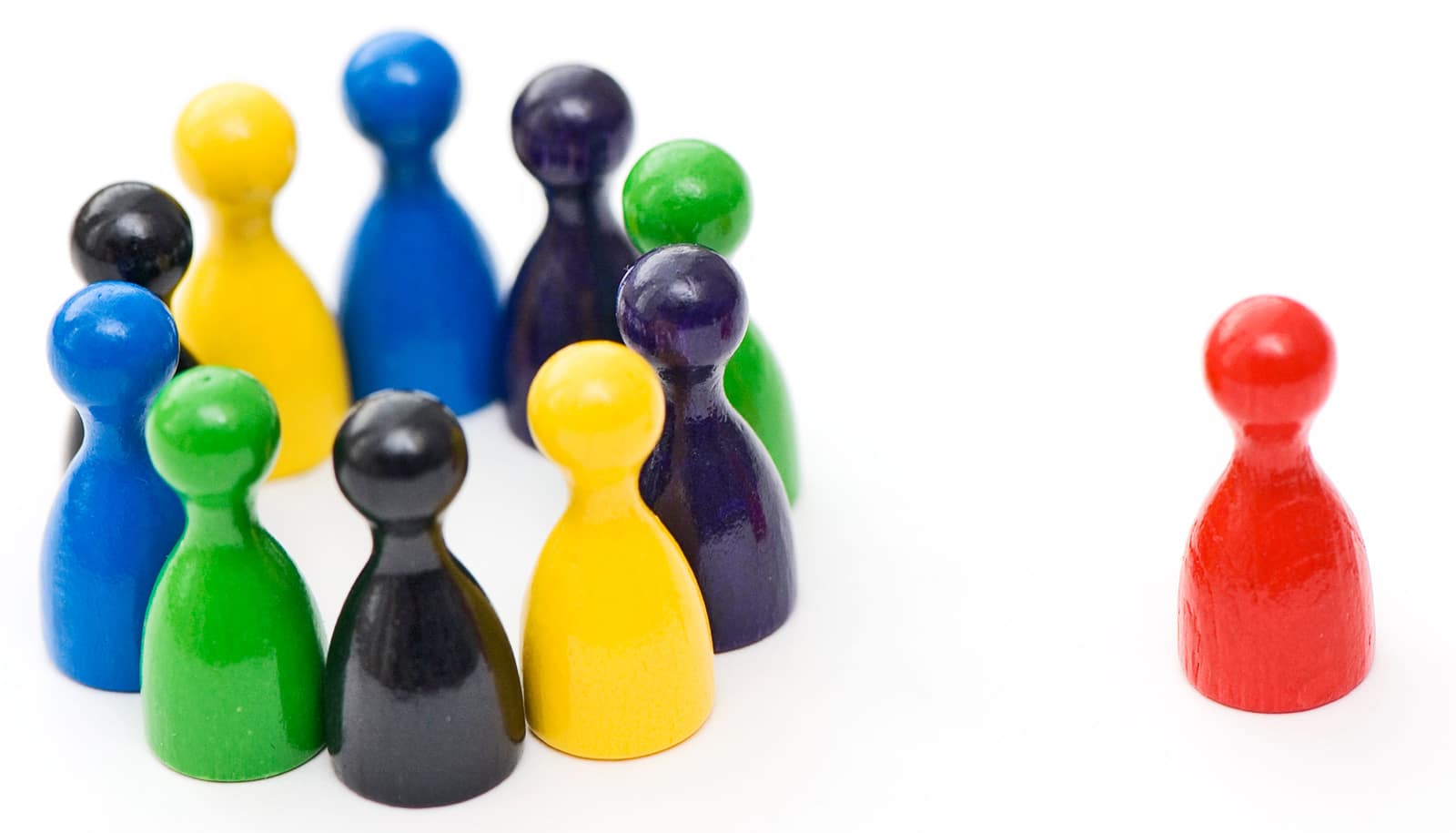When people feel that others don’t value them because of their group affiliations—like race or gender—they may be more inclined toward anti-social behavior, new research finds.
The study examines the psychological roots of anti-social attitudes and behavior, which can lead to crime, unemployment, and lack of opportunity.
“This work helps us to better understand the psychological causes of social deviancy,” says Peter Belmi, a doctoral student in organizational behavior at Stanford University and one of the study’s coauthors.
“When people feel that they are being viewed negatively by others simply because they belong to a particular gender, race, or other group membership, they come away with the impression that others do not treat them respectfully, which in turn makes them more likely to engage in social deviance,” says Belmi.
For example, Belmi says, black American students may worry that they could be judged in light of negative stereotypes about their abilities. And women may worry that others think they are not capable of succeeding in areas and roles traditionally held by men.
Prior research has shown that social identity threats can undermine performance, cognitive flexibility, and willpower, he notes.
Trouble at school
To better understand this phenomenon, the researchers recruited 1,280 participants from across the United States to answer online surveys about scenarios involving race, gender, perceptions, and feelings.
In one study, the researchers asked students whether they feel they are being negatively stereotyped in school. For example, they were asked to rate their agreement with the statement, “At school, I worry that people will draw conclusions about me, based on what they think about my racial group.”
Then, the researchers asked students whether they felt respected in school, and how much they have engaged in delinquent behaviors over the past year, such as cheating, skipping classes, or doing something that could have gotten them in trouble with the police.
The study found connections between when people felt negatively stereotyped or disrespected at school and their propensity for delinquent behaviors.
Racist or sexist bosses
In another study, the researchers asked black Americans to imagine that their manager made a racist remark about the intelligence of black Americans.
Black participants who imagined having a racist boss indicated that they would be far more likely to engage in counterproductive behaviors—such as wasting their employer’s supplies or badmouthing the company to others.
In another study, the researchers asked female participants to imagine that they faced the possibility of being denied a promotion either because their boss didn’t think a woman was suitable for a leadership position or because their personality wasn’t suitable for the job.
The results show that women who faced the prospect of being denied a promotion on the basis of their gender were more likely to say they would engage in counterproductive activities—such as working incorrectly on purpose, starting rumors, or ignoring coworkers who need help.
Feeling devalued
Interestingly, the researchers also found that this effect may occur even for members of historically non-stigmatized groups, such as white Americans.
For example, white participants who recalled an episode in their life when they were devalued because of their race, gender, or religious membership were more likely to perceive and expect disrespectful treatment—and cheat—than did white participants who recalled a time when they simply did not get want they wanted.
“For many, if not most people, the experience of being devalued simply because of membership to a particular group can elicit feelings of disrespect and trigger social deviancy,” the researchers write.
[related]
Threats to social identity can harm people’s prospects for achieving success in work, school, and society, the researchers say.
For instance, students may be more likely to engage in delinquent behavior in school if they believe that their teachers and school authorities view them simply through the lens of a negative stereotype.
“Or, people may feel compelled to retaliate if they believe that they have been unfairly passed over for a promotion simply because of their gender or race,” says Rodolfo Cortes Barragan, graduate student in psychology.
“Crime, delinquency, substance abuse, and distrust toward institutions and authorities are some examples of social deviancy that present significant problems and challenges for society,” he adds.
“This means being aware of our biases and making sure that all people have equal opportunity in everyday life.”
Additional coauthors from Stanford contributed to the study, which appears in the Personality and Social Psychology Bulletin.
Source: Stanford University


